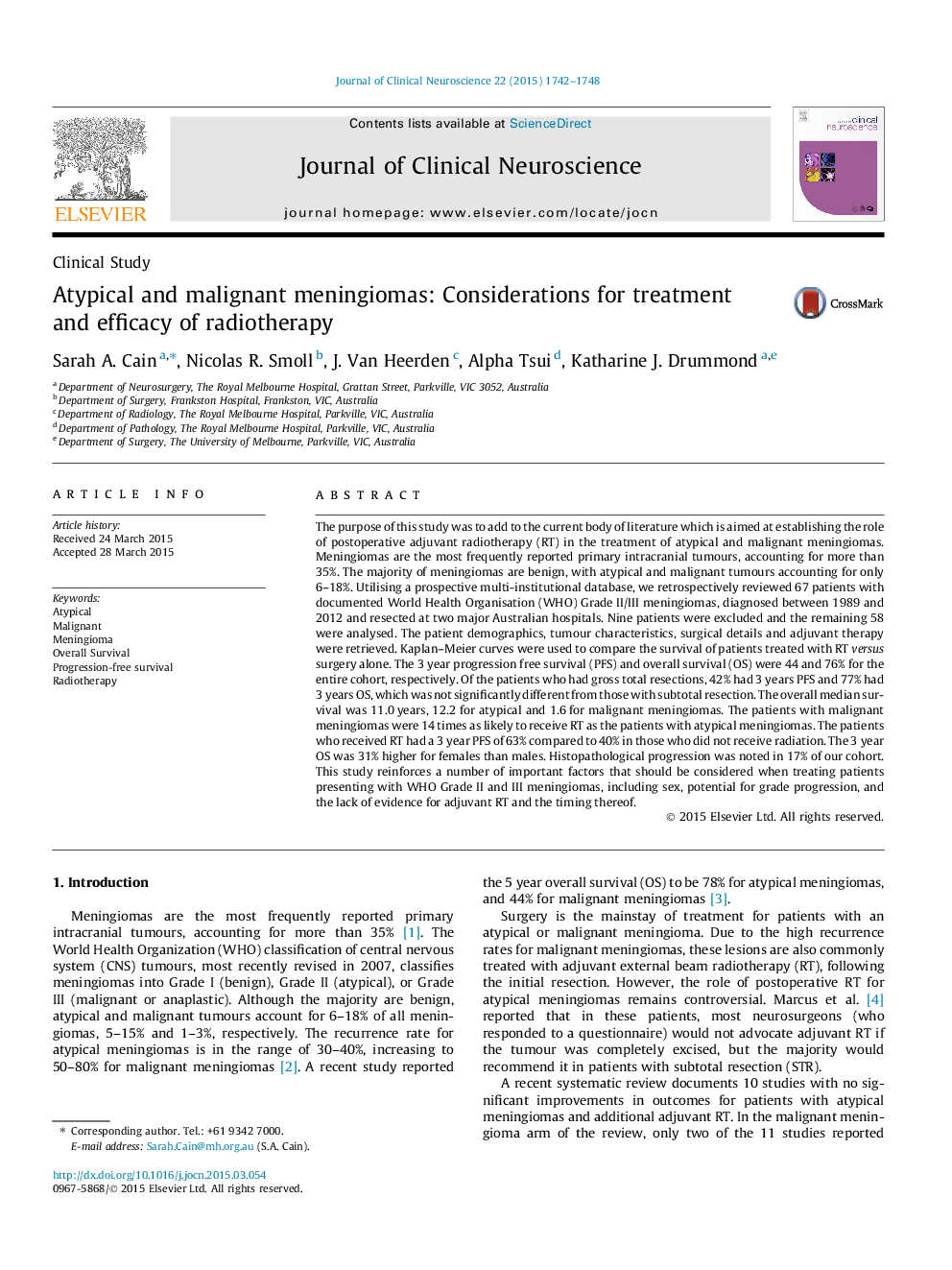| Article ID | Journal | Published Year | Pages | File Type |
|---|---|---|---|---|
| 3058643 | Journal of Clinical Neuroscience | 2015 | 7 Pages |
The purpose of this study was to add to the current body of literature which is aimed at establishing the role of postoperative adjuvant radiotherapy (RT) in the treatment of atypical and malignant meningiomas. Meningiomas are the most frequently reported primary intracranial tumours, accounting for more than 35%. The majority of meningiomas are benign, with atypical and malignant tumours accounting for only 6–18%. Utilising a prospective multi-institutional database, we retrospectively reviewed 67 patients with documented World Health Organisation (WHO) Grade II/III meningiomas, diagnosed between 1989 and 2012 and resected at two major Australian hospitals. Nine patients were excluded and the remaining 58 were analysed. The patient demographics, tumour characteristics, surgical details and adjuvant therapy were retrieved. Kaplan–Meier curves were used to compare the survival of patients treated with RT versus surgery alone. The 3 year progression free survival (PFS) and overall survival (OS) were 44 and 76% for the entire cohort, respectively. Of the patients who had gross total resections, 42% had 3 years PFS and 77% had 3 years OS, which was not significantly different from those with subtotal resection. The overall median survival was 11.0 years, 12.2 for atypical and 1.6 for malignant meningiomas. The patients with malignant meningiomas were 14 times as likely to receive RT as the patients with atypical meningiomas. The patients who received RT had a 3 year PFS of 63% compared to 40% in those who did not receive radiation. The 3 year OS was 31% higher for females than males. Histopathological progression was noted in 17% of our cohort. This study reinforces a number of important factors that should be considered when treating patients presenting with WHO Grade II and III meningiomas, including sex, potential for grade progression, and the lack of evidence for adjuvant RT and the timing thereof.
